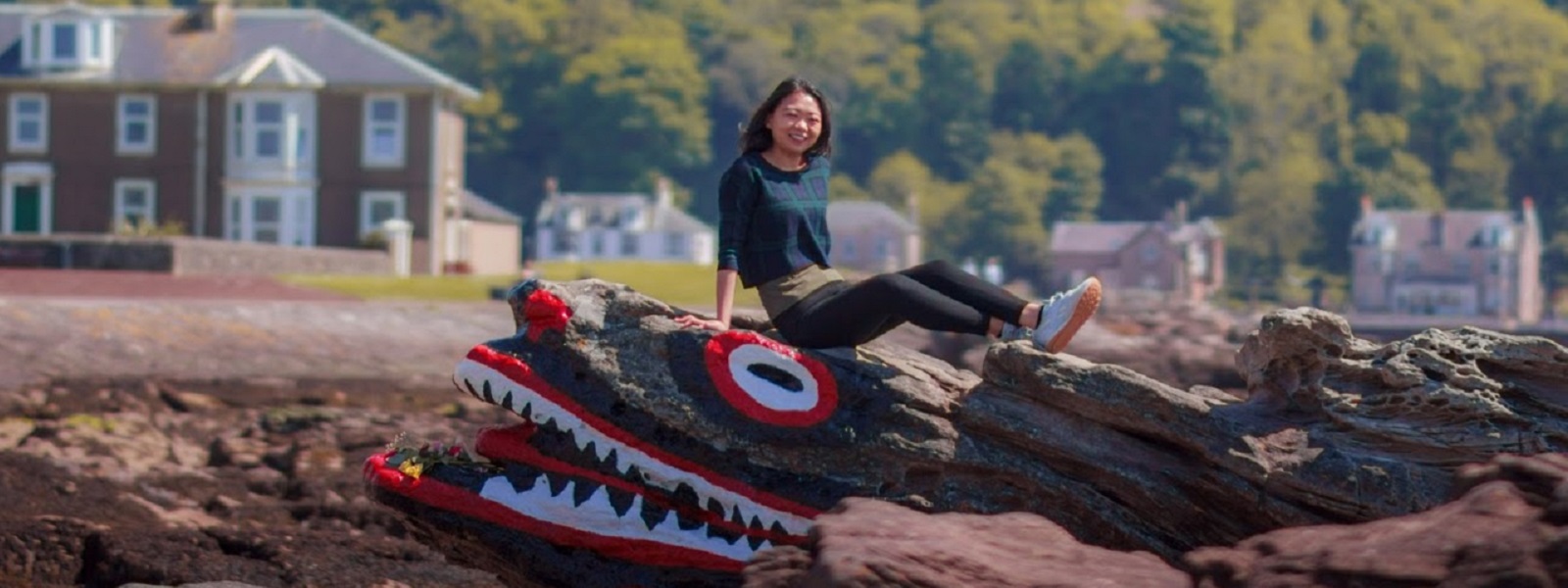Tell us a bit about your background…
I became a civil servant after my undergraduate degree. This work enhanced my communication skills and helped me to figure out what I really wanted to be. After realising that my real passion is in academic research, I left my home city and went to Shanghai for my masters degree in Chinese Civil and Commercial Law at the Shanghai Academy of Social Sciences. At the end of my first year, Professors from University of Strathclyde came to us with the newly launched LLM Law and Finance project. I loved the idea of working as an interpreter between lawyers and economists and believe that there is a need for such interpreters in legal professions. I did my own research about Strathclyde then decided to take the chance.
Tell us a little about your scholarship, and how this has supported you in your time here.
My scholarship means a lot to me. My original funding was only enough for 1 year. However, Professor Douglas saw my passion in this research area and offered me my scholarship. This scholarship not only releases financial pressure, but also shows his recognition and confidence in me as an independent researcher. This recognition encourages me to pursue my dream.
Why did you choose to continue studying at the University of Strathclyde?
I choose to continue my studies here because of the supportive environment and the expertise of my supervisor. In the second semester of my masters degree, I discussed doing a PhD with my lecturers. Then, Dr Randall helped to organise a list of potential supervisors and places where I could pursue this as banking law was a relatively new research area in Strathclyde at that time. There weren’t enough experienced professors to supervise me. Dr Rose encouraged me to write up my research proposal and volunteered to proofread it. The environment at Strathclyde was so supportive that I didn’t want to switch to another place. Luckily, before summer, my current supervisor, Professor Hudson moved from England to Strathclyde. He is a leading figure in my research area and like other staff in Strathclyde, very approachable. Meanwhile, his moving here enhances my confidence in the future development of banking law research in Strathclyde. I can see that we are investing in new research areas and we have the ability to grow. During the first year of my PhD, we recruited another researcher in banking law, which reassured my confidence in the university.
What has been the highlight of your time at Strathclyde so far?
Strathclyde is an enjoyable place. We have more than 50 students’ clubs and a professional gym. Here, I can gain knowledge, a delightful spirit and a healthy body. I loved archery when I first watched the movie Robin Hood. However, the sport is quite expensive in China and I never had the chance to practice. At Strathclyde, our archery club offers free training twice per week for its members. In joining the club I've had the chance to visit universities across the country and meet new friends.
What specialist knowledge/professional skills have you developed whilst studying the course?
Strathclyde encourages critical thinking. Our masters courses focus on discussion. During the seminars, students have opportunities to share their views based on their cultural background, experience and research. This communication inspires students to understand the world from different angles.
What would be your advice for people considering taking this course?
Don’t be shy to ask for help. Before I started my masters degree, I had limited understanding of common law. Therefore, I asked Professor Brodie for a reading list which prepared me for the upcoming course. In my first year here, my first few assignments weren’t as good as I had hoped. I approached my lecturer and his detailed feedback helped me to improve my writing skills. There is always help available. We have to have the courage to tell people what we need.
What have been the main challenges studying at postgraduate level?
The whole PhD process is beneficial for me to research and understand the world around me. First, I have to be my own master. Unlike a masters degree where course materials and tasks are set up by the lecturer, a PhD is my own original work, where I have to set up the research question, organise the reading materials and research methodology independently. Meanwhile, during this process, I have to critique my work from every possible angle, otherwise, the audience would do it for me and I don’t want to be unprepared. Challenging myself does not mean overwhelming myself by the questions I’ve set. More importantly, it is a process of pushing myself to think why I have chosen this approach instead of others, explaining it to myself and then convincing myself.
What are your ambitions for the future?
I want to become a professor in law in the future as I enjoy the creative and supportive environment of studying in the university. This job allows me to pursue my passion, find the unknown, and help young people with their dreams.
